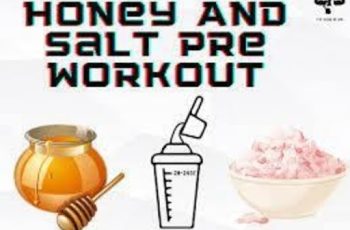Pancreatic cancer stands as a formidable adversary in the realm of oncology, known for its elusive nature and alarming fatality rate. With a survival rate that lags behind many other malignancies, understanding the factors contributing to its development has become paramount.
While genetics play a role, recent research has unveiled a complex interplay between lifestyle choices and the onset of pancreatic cancer. In this exploration, we peel the layers to reveal the culprits lurking in our daily routines. These 4 lifestyle factors have been significantly linked to an increased risk of pancreatic cancer.
Table of Contents
Tobacco Smoking and Pancreatic Cancer
Tobacco smoking, a widespread habit with well-documented health implications, emerges as a potent contributor to the development of pancreatic cancer. Extensive research has underscored the alarming association between smoking and an increased risk of this lethal disease.
Linking Smoke and Cancer
Studies have consistently shown that individuals who smoke are significantly more likely to develop pancreatic cancer than their non-smoking counterparts. According to data from cancer.org, cigarette smoking happens to be the cause of 25% of pancreatic cancers.
Research findings indicate that smokers face a risk that is nearly twofold higher, shedding light on the impact of this habit on pancreatic health. Besides pancreatic cancer, smoking cigarettes is also linked to numerous other health conditions.
Mechanisms at Play
The connection between tobacco smoking and pancreatic cancer is not merely coincidental; it is rooted in intricate biological mechanisms. Cigarette smoke contains a complex mixture of carcinogens that can damage the pancreas. These harmful substances may initiate inflammation, disrupt DNA repair mechanisms, and generate oxidative stress, creating an environment conducive to developing cancerous cells.
Secondhand Smoke and Indirect Risk
It’s important to note that the threat of tobacco smoke isn’t limited to smokers alone. Secondhand smoke, a concern for non-smokers exposed to smoke from others, has also been linked to a heightened risk of pancreatic cancer. This underscores the significance of individual choices and collective efforts to mitigate exposure.
Breaking the Cycle
Acknowledging the strong association between tobacco smoking and pancreatic cancer is the first step toward prevention. As daunting as it might be, quitting smoking has significantly reduced the risk of developing pancreatic cancer. Even after years of smoking, the body’s remarkable ability to heal and rejuvenate itself highlights the transformative potential of breaking free from this habit.
Exposure to PFAS Chemicals
In the intricate landscape of pancreatic cancer risk, a novel player has emerged: per- and polyfluoroalkyl substances (PFAS) chemicals. Once hailed for their heat and water-resistant properties in various products, these synthetic compounds have gained increasing attention. This attention is due to their potential links to various health issues, including pancreatic cancer.
Some PFAS, like FTOHS, readily volatilize and have a 20-day atmosphere half-life. This leads to extensive distribution. Even products having PFAS can be harmful. For instance, firefighting foam has PFAS as an ingredient, and it is linked to various health hazards.
According to TorHoerman Law, PFAS is linked to various cancers, such as pancreatic, bladder, colon, rectal, etc. Studies have also proven its association with some non-cancerous health hazards. These include changes in liver enzymes and a risk of higher blood pressure, among other effects.
If you have faced such problems due to exposure to firefighting foam, you can file a lawsuit like many others. The plaintiffs of the lawsuits allege that the manufacturers were aware of these problems but didn’t raise awareness for the same.
Filing a case can get you a settlement amount for the troubles you have gone through. You can expect the firefighter foam cash settlements to vary widely based on the severity of the case. Medical bills, lost wages, and the manufacturers of PFAS-based firefighter foams will compensate for everything else you have gone through.
The PFAS Puzzle
Per- and polyfluoroalkyl substances, commonly referred to as PFAS, have become ubiquitous in modern life. Found in everyday items such as non-stick cookware, waterproof fabrics, and even food packaging, these chemicals have become ubiquitous. They have made their way into the environment and human bodies.
They have become a part of several water bodies and can even reach your tap water. However, the presence of PFAS, PFOA, or PFOS in water should not exceed the safe limit. On June 15, 2022, the EPA laid down safe limits as 0.004 parts per trillion for PFOA and 0.02 ppt for PFOS in drinking water.
While their resistance to degradation has contributed to their widespread persistence, recent research has unveiled concerning correlations. These correlations exist between PFAS exposure and adverse health outcomes, including pancreatic cancer.
Possible Mechanisms
While the exact pathways through which PFAS chemicals might influence pancreatic cancer development are not yet fully understood, some hypothesized mechanisms provide insight. One potential avenue involves PFAS-induced disruption of hormonal balance and immune function, which could contribute to cellular changes conducive to cancer growth.
Moreover, PFAS compounds may interact with genetic material. This interaction can potentially lead to DNA damage and mutations that, in turn, can promote the initiation and progression of pancreatic cancer.
Dietary Habits and Obesity
In the intricate web of factors influencing pancreatic cancer risk, the role of dietary habits and obesity emerges as a critical junction. Here, lifestyle choices intersect with the complex physiology of cancer development. Mounting evidence points to the undeniable impact of what we eat and our body weight on the likelihood of encountering this formidable disease.
Diet’s Dual Role
Dietary habits play a dual role in pancreatic cancer, both as a potential risk factor and a modifiable aspect of our lives. High-fat and high-calorie diets, often characterized by a surplus of processed foods, have been associated with an increased risk of pancreatic cancer.
These dietary patterns can contribute to chronic inflammation, insulin resistance, and oxidative stress. Oxidative stress is a biological process that provides a fertile ground for the initiation and progression of cancer cells.
Obesity’s Weighty Influence
Obesity, characterized by excess body weight and adipose tissue, further magnifies the risk of pancreatic cancer. Research consistently demonstrates that individuals with obesity face a heightened likelihood of developing this malignancy.
Hormonal and metabolic changes mediate the intricate relationship between obesity and cancer development. These changes include elevated insulin levels and insulin-like growth factors, which have been linked to cell growth and proliferation.
Alcohol Consumption and Its Impact
In the intricate tapestry of pancreatic cancer etiology, alcohol consumption emerges as a thread of concern. It weaves its way through lifestyle factors that can significantly influence the risk of encountering this formidable disease.
Alcohol consumption, a prevalent social activity with deep historical roots, has been implicated in an increased risk of pancreatic cancer. Studies consistently highlight the association between heavy drinking and a higher likelihood of encountering this malignancy.
Individuals who consume substantial amounts of alcohol over an extended period are particularly vulnerable to its adverse effects on pancreatic health. A recent study from Cancer Research UK shows that around 70 out of 100 cases of chronic pancreatitis are due to high alcohol consumption. Pancreatic cancer is more common in such individuals.
The relationship between alcohol and pancreatic cancer is not solely a statistical coincidence. Instead, it is driven by intricate biological mechanisms. Alcohol metabolism generates toxic byproducts that can damage DNA and disrupt cellular processes. Moreover, alcohol consumption triggers inflammation and oxidative stress within the pancreas, creating an environment conducive to cancer initiation and progression.
Conclusion
As we conclude this journey through the intricate web of lifestyle factors linked to pancreatic cancer, a clear message emerges: our choices matter. Each facet of our lives shapes our risk of encountering this formidable disease, from tobacco smoke to dietary habits. Furthermore, the complex interplay between diabetes and pancreatic cancer contributes to this risk.
Pancreatic cancer, a silent adversary with dire consequences, demands our attention and proactive response. It’s a disease that often presents challenges in early detection and treatment, underscoring the critical importance of prevention. Armed with knowledge, we can rewrite our narratives and collectively influence the trajectory of this disease.


